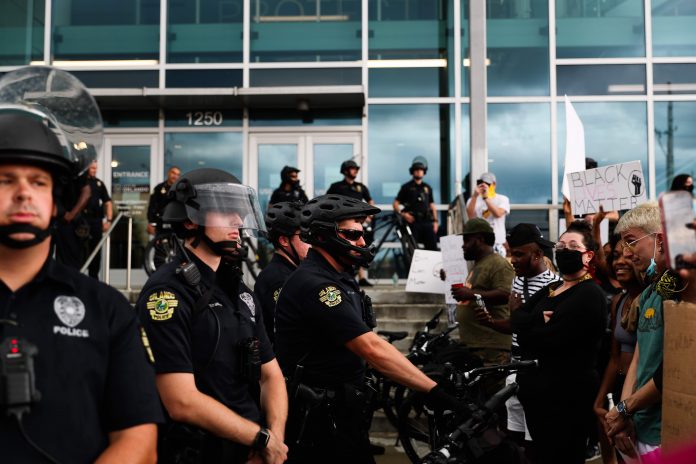
Orlando Police Department’s response to resistance and use of chemical agents during protests in Orlando have been questioned by state lawmakers since large protests began on Saturday.
Rep. Anna Eskamani — who represents much of downtown Orlando and Winter Park in District 47 — said in a Saturday tweet the use of chemical agents by Orlando Police Department was excessive.
Eskamani attended the protests on Saturday and voiced concerns to hundreds of individuals as they gathered around Orlando’s City Hall.
Orlando Police Department’s Response to Resistance and Apprehension Techniques Policies and Procedures can be read here.
Response to Resistance
All employees of the Orlando Police Department have an obligation to protect the public.
The policies state it is the duty of every employee present at any scene where force is being applied to stop — or attempt to stop — force if it is being inappropriately used.
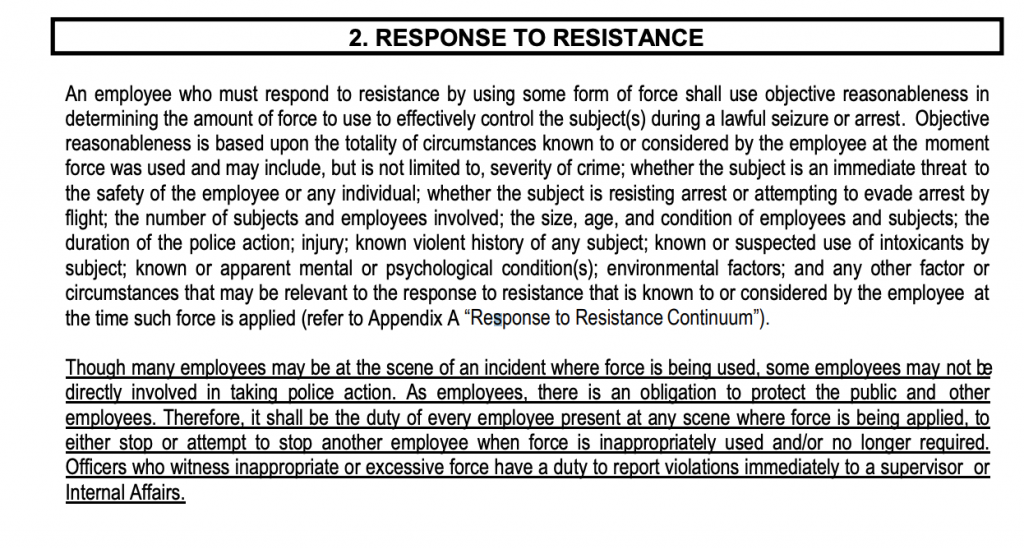
“An employee who must respond to resistance by using some form of force shall use objective reasonableness in determining the amount of force to use to effectively control the subject(s) during a lawful seizure or arrest,” the policies read.
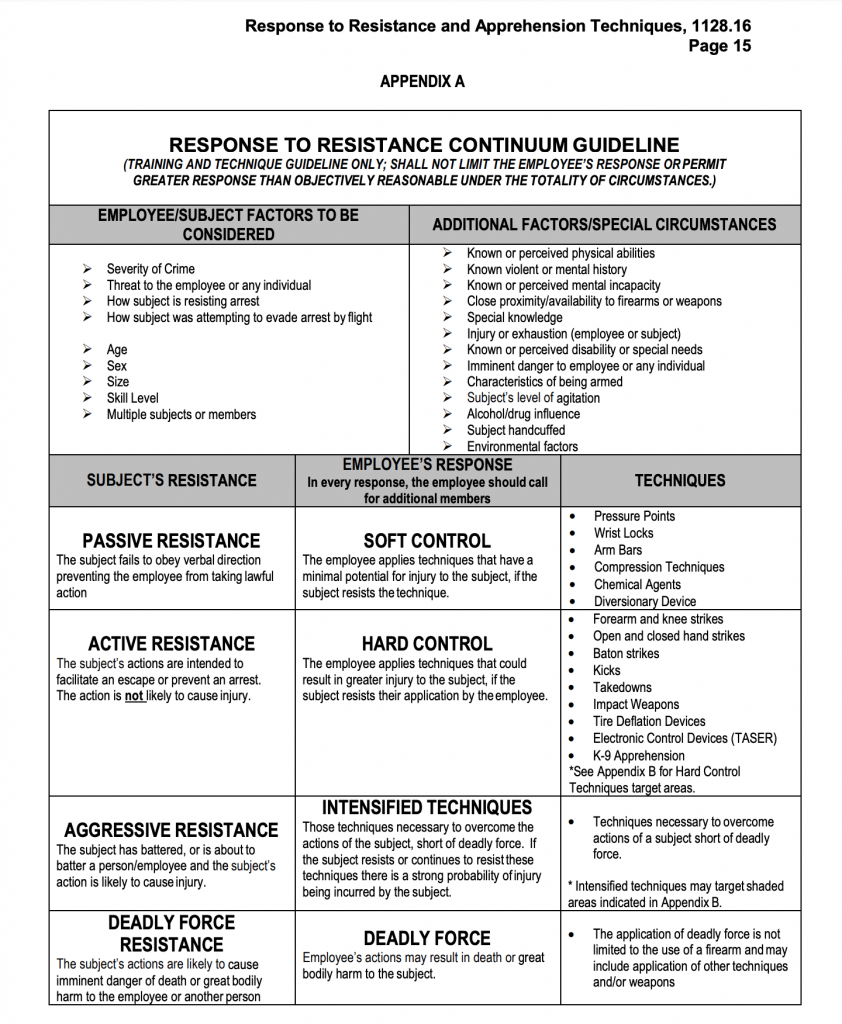
Weapons
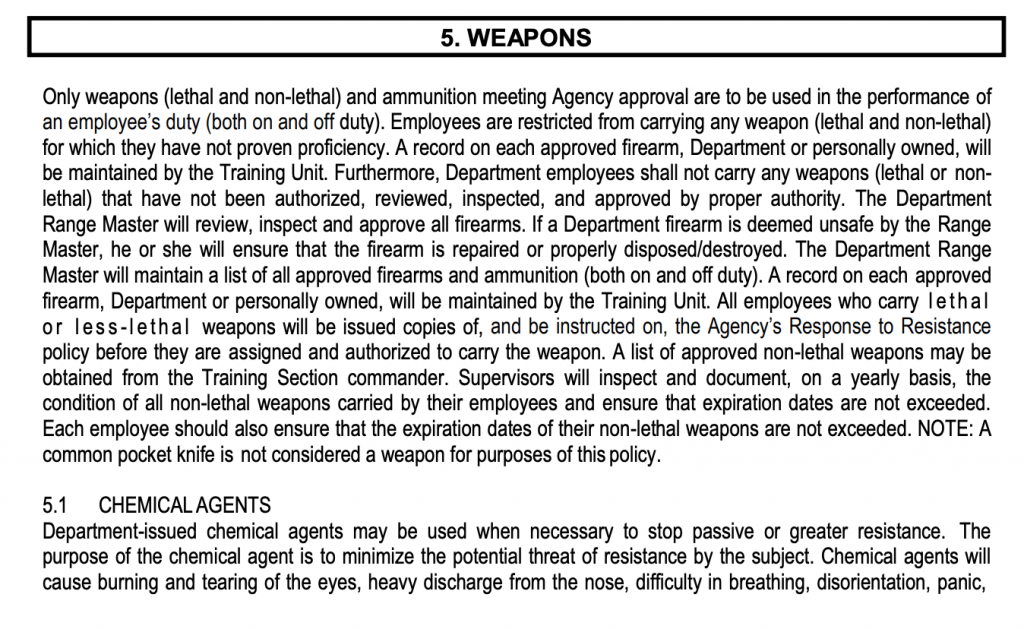
Chemical Agents
Orlando Police Department’s policies state the purpose of a chemical agent is to minimize the potential threat of resistance — the effects from the chemical agent alone do not classify as an injury.
The policies state chemical agents should only be used in a situation where an arrest is likely, but an incident report should be completed if an arrest is not made.
All uniformed employees who have been trained to use chemical agents shall carry the chemical agent while performing on-duty or extra-duty work assignments, according to OPD policies.
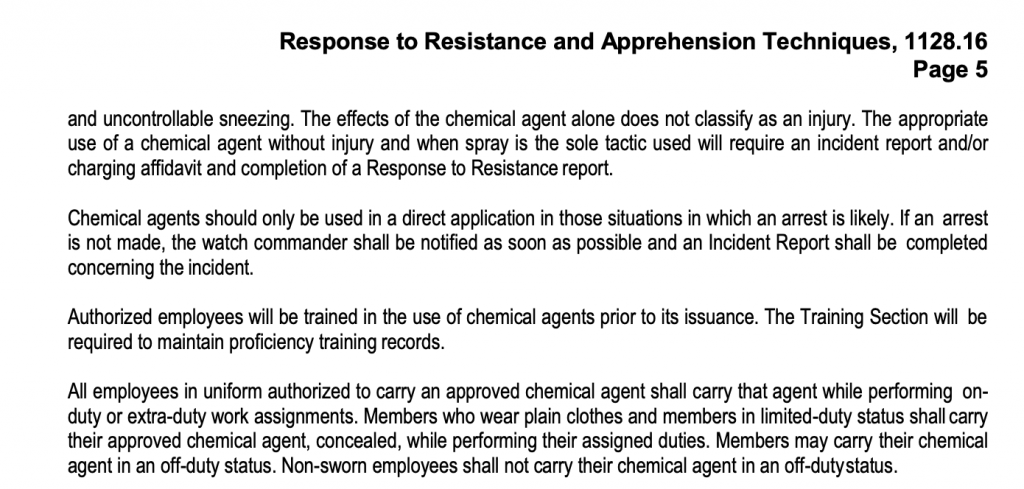
“Members who wear plain clothes and members in limited-duty status shall carry their approved chemical agent, concealed, while performing their assigned duties,” the document states.
The documents state chemical agents will cause burning and tearing of the eyes, heavy discharge from the nose, difficulty in breathing, disorientation, panic, and uncontrollable sneezing.
Clear Out
The policies state OPD officers can use clear outs when verbal methods of persuasion have failed and anticipated danger could arise if it is not used.
Clear outs are non-lethal, non-flame creating chemical irritants that come in an aerosol can and have the same effects as chemical agents, the policies state.
Clear outs are listed under OPD’s policies as “weapons” and are described as being designed to force a subject from a confined area or to disperse large crowds.
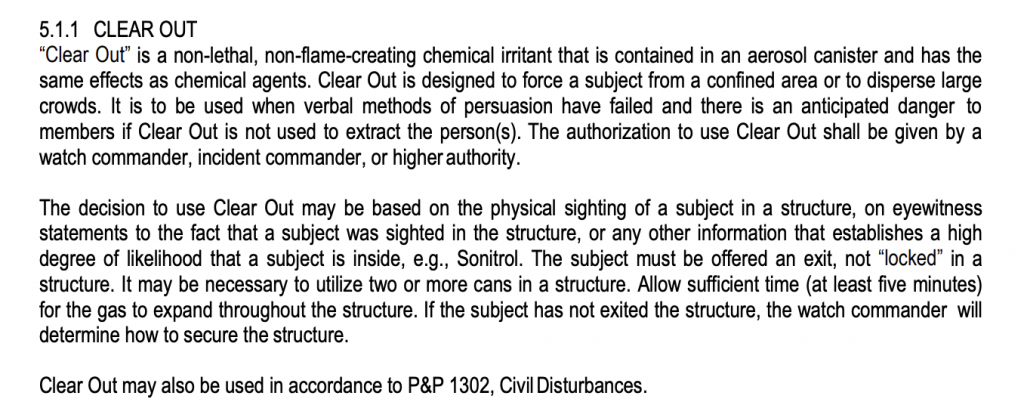
The use of clear outs may be based on a physical sighting, eyewitness statements or other information, the policies state.
Reporting Requirements
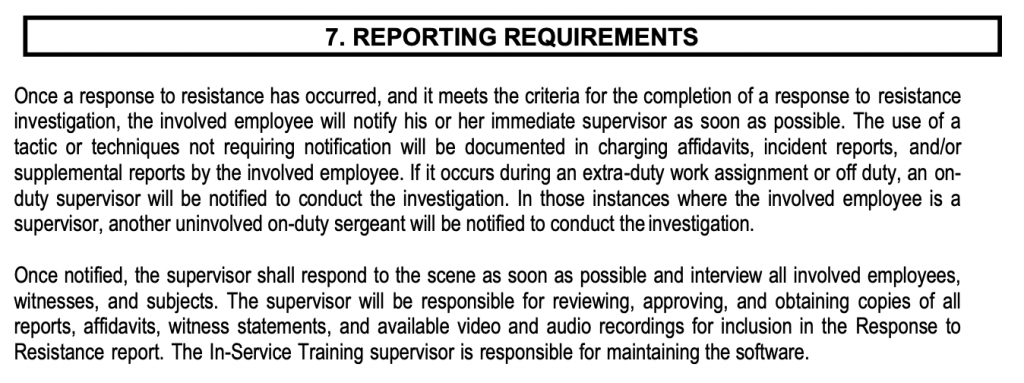
Once a response to resistance has occurred — and it warrants a response to resistance investigation — the involved employee will notify his or her supervisor immediately, according to OPD policies.
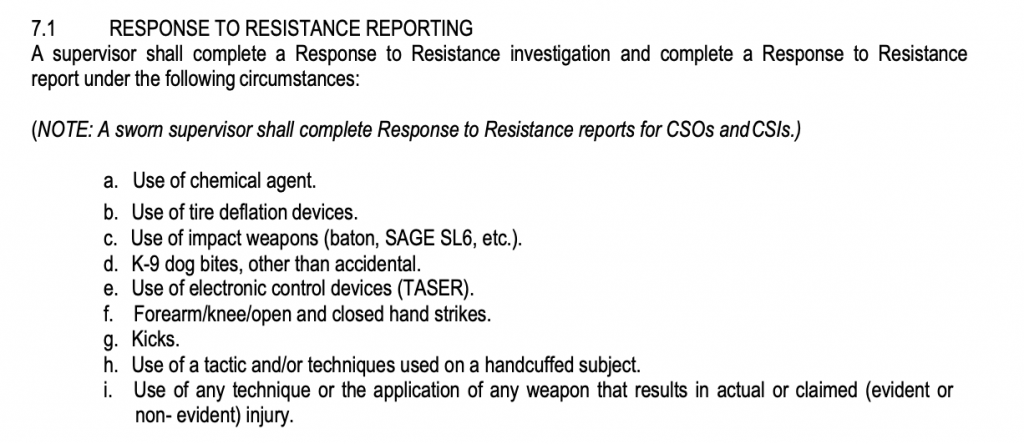
The policies state employees involved in responses to resistance that warrant reporting are required to turn in all documents and necessary reports by the end of their shift.
Misdemeanor cases where the use of chemical agents are the only response to resistance — and there are no reported or evident injuries — are listed as the exception in this policy.



